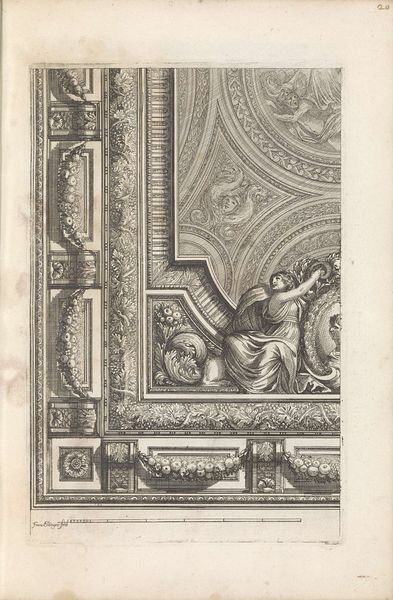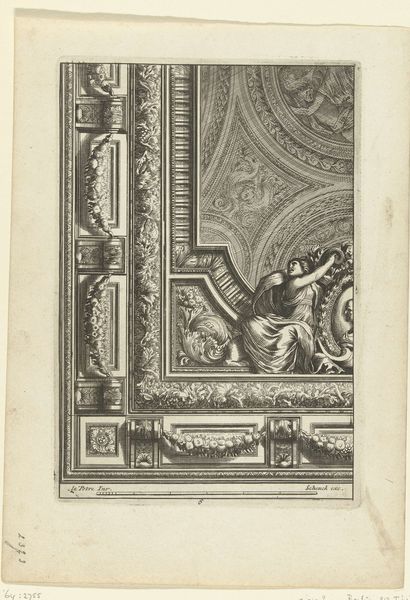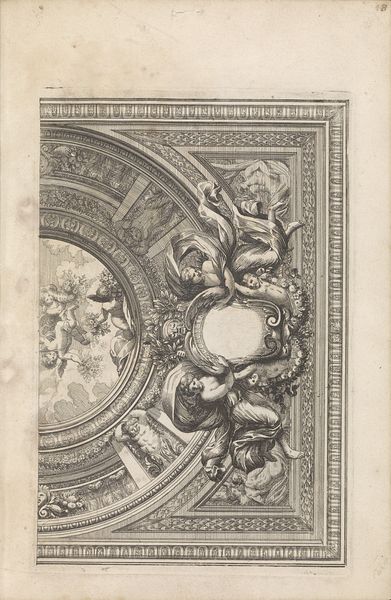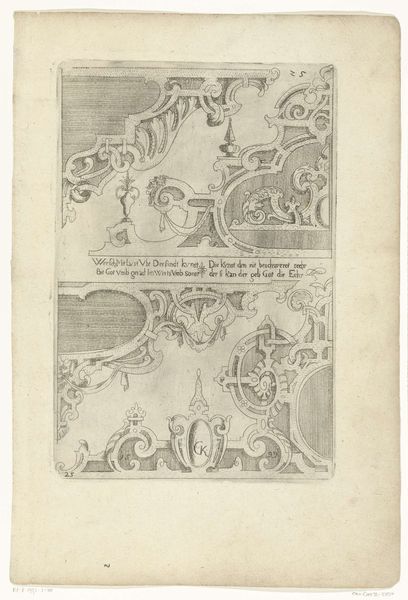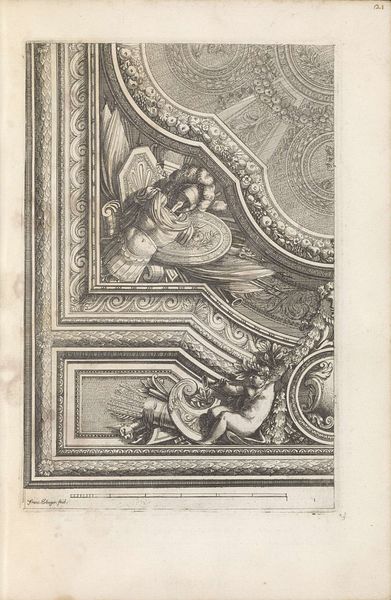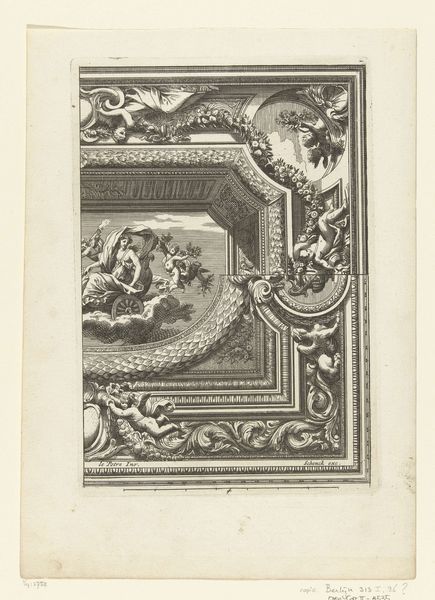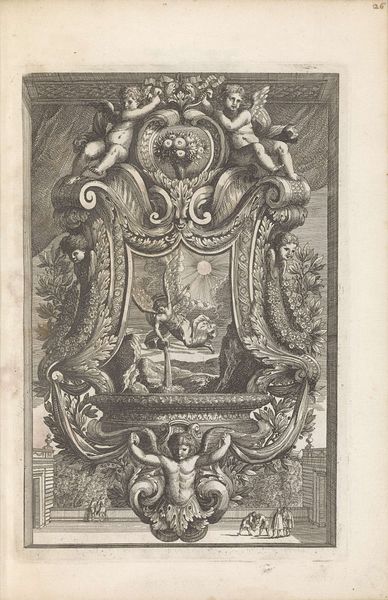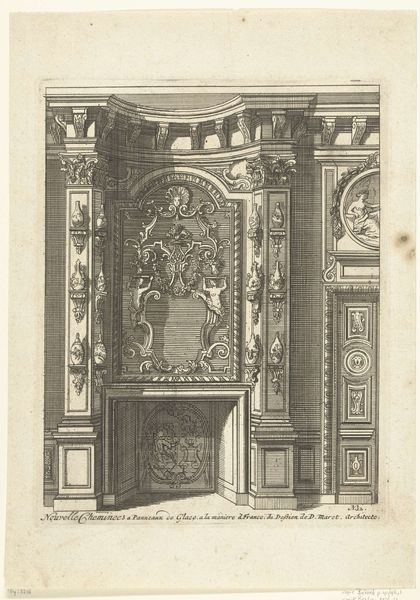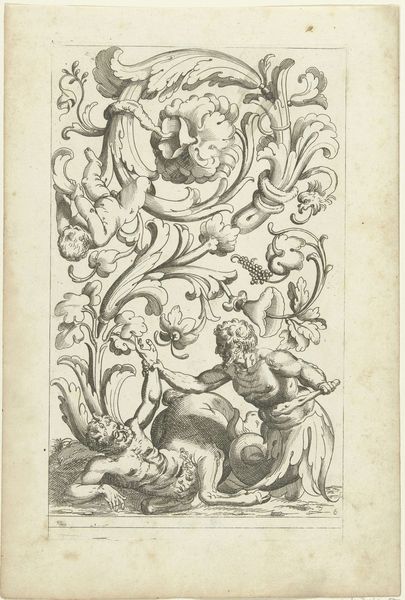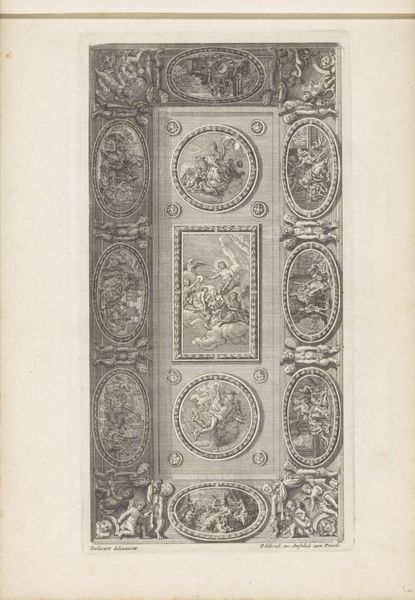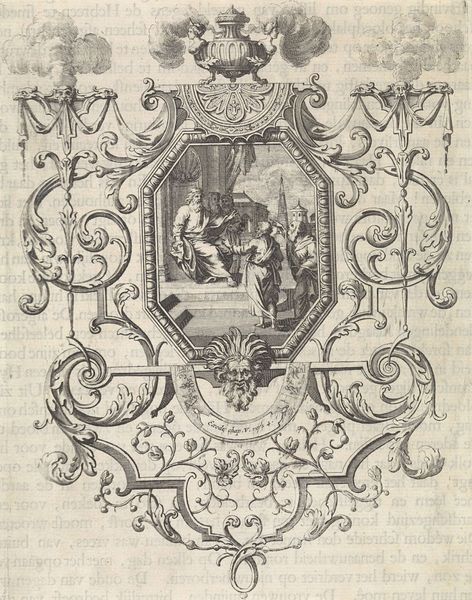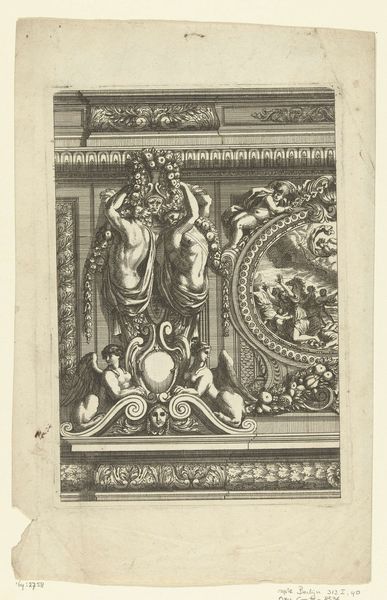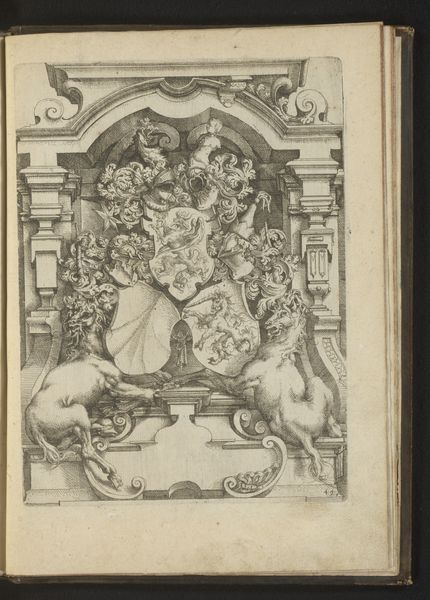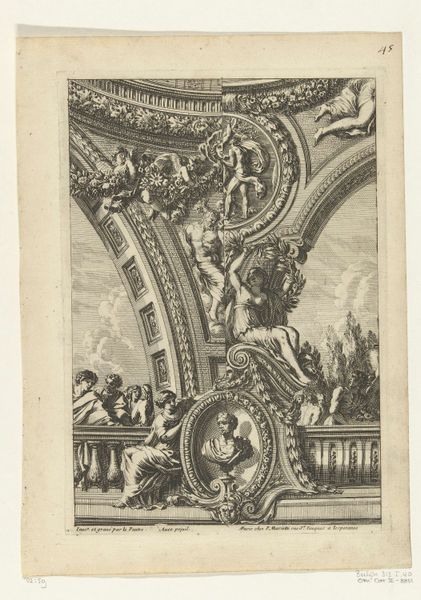
Kwart plafond met twee mannen leunend over een balustrade after 1644
0:00
0:00
franzertinger
Rijksmuseum
carving, print, engraving
#
carving
#
baroque
# print
#
old engraving style
#
figuration
#
history-painting
#
decorative-art
#
engraving
Dimensions: height 217 mm, width 145 mm
Copyright: Rijks Museum: Open Domain
Editor: So, this is "Kwart plafond met twee mannen leunend over een balustrade," after 1644, by Franz Ertinger, held at the Rijksmuseum. It's an engraving of a ceiling design. The level of detail is incredible. What jumps out to you when you look at this piece? Curator: What immediately strikes me is how this engraving embodies the ambitions of Baroque art. It’s not simply decorative; it reflects power, wealth, and sophisticated taste. These ceiling designs were essentially propaganda. Editor: Propaganda? How so? Curator: Think about where these ceilings were installed. Palaces, churches, grand residences. They visually communicated the owner's status and their connection to cultural and religious narratives. The elaborate carving and figuration… It’s about impressing visitors, isn't it? Making a statement. Editor: I guess I hadn’t considered the setting like that. It's so easy to get lost in the ornamentation. What about the classical figures? What role do they play? Curator: Absolutely! The figures – gods, putti, heroes – are deliberately chosen. They reinforce a sense of lineage and authority. These patrons sought to associate themselves with the glory of the past to legitimize their position in the present. Did they actually live up to those implied standards? That's a question the piece seems to beg. Editor: So it's about visually constructing an identity, then, and controlling the message that was being sent to visitors. Curator: Exactly! Art was a tool, and these engravings helped disseminate these ideas on a wider scale beyond those who actually had a frescoed ceiling. They are like architectural aspirations! Editor: That’s a really different way of thinking about decorative art. It makes me see the artwork, and Baroque art in general, as less about ornamentation and more about social dynamics. Curator: And hopefully appreciate the subtle and not-so-subtle ways that art continues to shape our understanding of power.
Comments
No comments
Be the first to comment and join the conversation on the ultimate creative platform.
